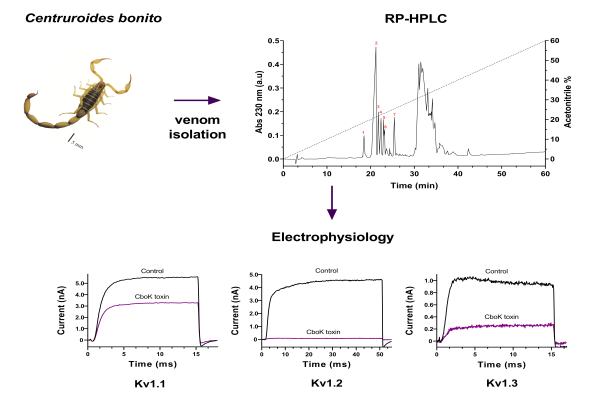
Kashmala Shakeel, Gyorgy Panyi and his colleagues in international collaboration with Prof. Possani’s research group, UNAM, Mexico work on peptide toxins that inhibit different potassium channels and hold the potential to be used as therapeutic drugs. Here the team studied seven new scorpion toxin peptides isolated from the venom of Centruroides bonito, named CboK1 to CboK7. CboK peptides, ranging in size from 32 to 39 amino acids, showed sequence similarity with already known potassium scorpion toxins (KTx) and phylogenetic analysis revealed that CboK1 and CboK2 belong to α-KTx 10 subfamily whereas others belong to α-KTx 2 subfamily. Electrophysiological assays demonstrated that except CboK1, all six other peptides blocked the Kv1.2 channel with Kd values in the picomolar range (24–763 pM) and inhibited the Kv1.3 channel with comparatively less potency (Kd values between 20–171 nM). CboK3 and CboK4 inhibited less than 10% and CboK7 inhibited about 42% of Kv1.1 currents at 100 nM concentration. Among all, CboK7 showed an outstanding affinity for Kv1.2 (Kd = 24 pM), as well as high selectivity over Kv1.3 (850-fold) and Kv1.1 (6000-fold). These characteristics of CboK7 may provide a framework for developing tools to treat Kv1.2-related channelopathies. The findings of this study were published in the MDPI journal Toxins.